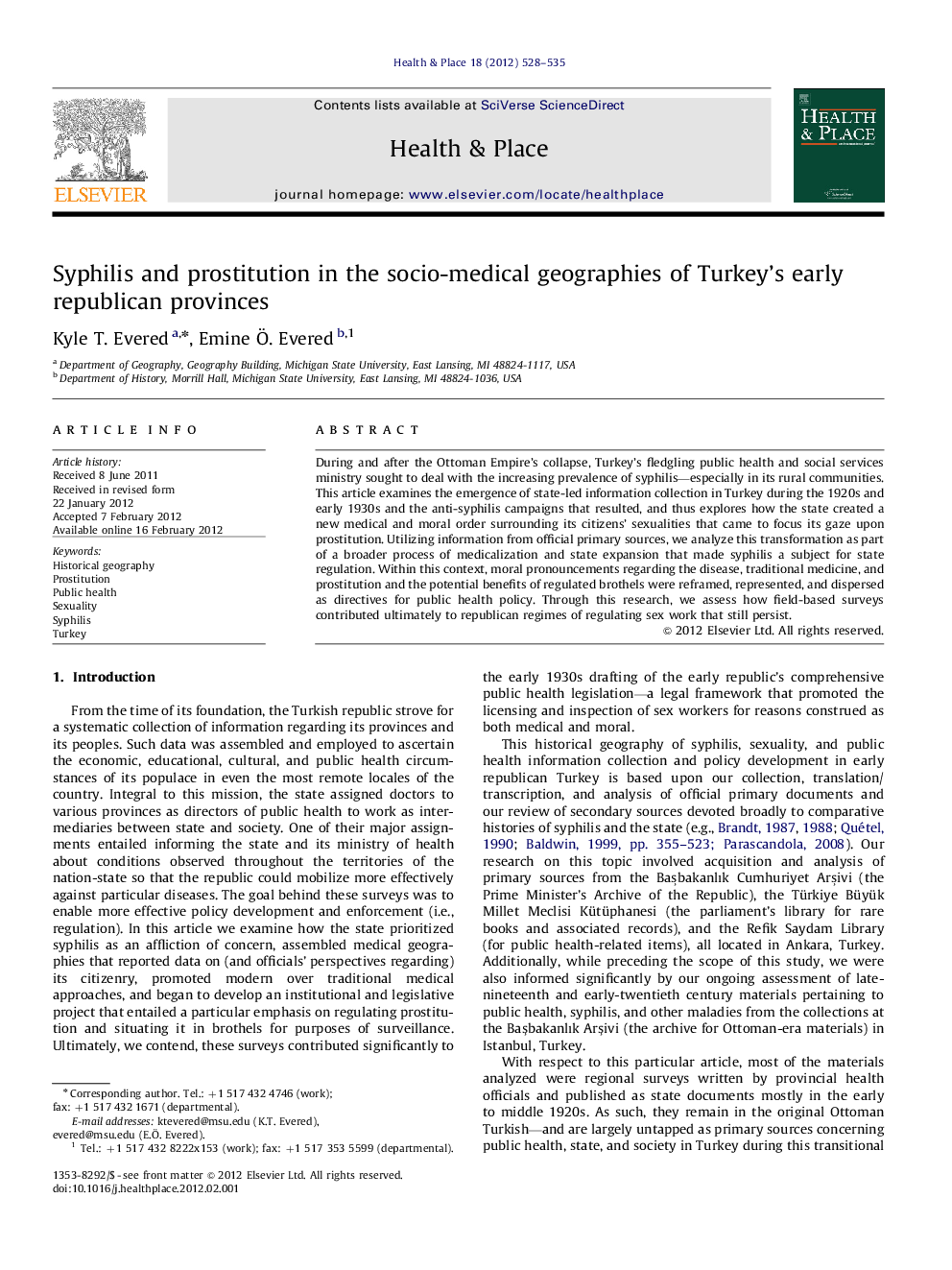| Article ID | Journal | Published Year | Pages | File Type |
|---|---|---|---|---|
| 10502913 | Health & Place | 2012 | 8 Pages |
Abstract
During and after the Ottoman Empire's collapse, Turkey's fledgling public health and social services ministry sought to deal with the increasing prevalence of syphilis-especially in its rural communities. This article examines the emergence of state-led information collection in Turkey during the 1920s and early 1930s and the anti-syphilis campaigns that resulted, and thus explores how the state created a new medical and moral order surrounding its citizens' sexualities that came to focus its gaze upon prostitution. Utilizing information from official primary sources, we analyze this transformation as part of a broader process of medicalization and state expansion that made syphilis a subject for state regulation. Within this context, moral pronouncements regarding the disease, traditional medicine, and prostitution and the potential benefits of regulated brothels were reframed, represented, and dispersed as directives for public health policy. Through this research, we assess how field-based surveys contributed ultimately to republican regimes of regulating sex work that still persist.
Related Topics
Health Sciences
Medicine and Dentistry
Public Health and Health Policy
Authors
Kyle T. Evered, Emine Ã. Evered,
